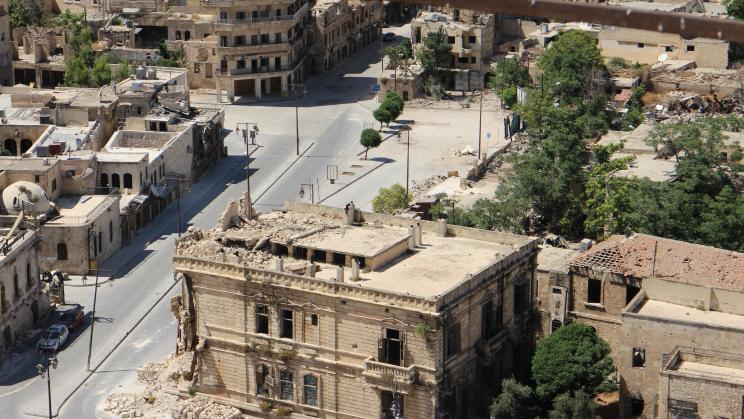
SIPRI, Signalistgatan 9, Solna
The various conflicts in Syria are now approaching their ninth continuous year. Efforts at conflict resolution remain inconclusive and conservative estimates conclude that there have been in excess of 370 000 deaths, of which roughly one-third are civilians. Cooperation and conflict between armed actors have been fluid and difficult to understand, while different states have intervened militarily in Syria to promote or defend their national interests.
Syria has seen extensive use of tactics and weapons that challenge international humanitarian law, and the mass displacement of people caused by the deliberate targeting of civilians has increased pressure on neighbouring countries. In 2015, the large number of refugees that travelled from Syria to seek asylum in the European Union (EU) created a political shock that tested the solidarity of EU member states.
This panel discussion assessed how the Syrian conflict has reshaped the strategic relationships in the Middle East, both at the global level and between key regional actors. Furthermore, the panel analysed the status and anatomy of the various sub-conflicts in the Syrian crisis following the Turkish intervention and what lessons can be drawn from Syria regarding warfare techniques and the role of non-state actors. Finally, the panel discussed how Europe, in particular the EU, can develop instruments to limit the consequences of the Syrian crisis to European security and how to enhance its capacity to contribute to crisis management in its neighbours, Syria and the Middle East.
Panellists
Dr Ian Anthony, Director of the European Security Programme, SIPRI
Erika Holmquist, Analyst in the Asia and Middle East Programme, Swedish Defence Research Agency (FOI)
Ambassador Lars-Erik Lundin, Distinguished Associate Fellow, SIPRI
Ambassador Michael Sahlin, Distinguished Associate Fellow, SIPRI
Moderator
Professor Jenny White, Stockholm University Institute for Turkish Studies
Participation at the event was by invitation only.